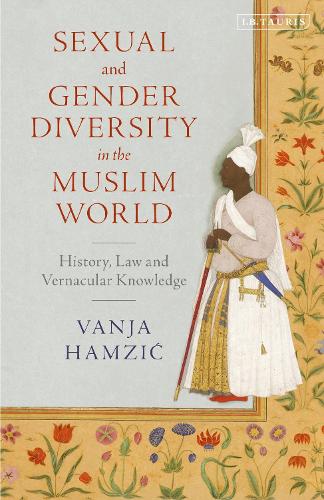
Sexual and Gender Diversity in the Muslim World: History, Law and Vernacular Knowledge
(Paperback)
Publishing Details
Sexual and Gender Diversity in the Muslim World: History, Law and Vernacular Knowledge
By (Author) Vanja Hamzic
Bloomsbury Publishing PLC
I.B. Tauris
19th September 2019
United Kingdom
Classifications
Tertiary Education
Non Fiction
Gender studies, gender groups
LGBTQIA+ Studies / topics
Human rights, civil rights
305.697
Physical Properties
Paperback
352
Width 138mm, Height 216mm
338g
Description
Discrimination on the grounds of sexual orientation or gender identity is forbidden in contemporary international human rights law, yet in many interpretations of Islamic law, this is seen to contradict the tenets of Islam. Vanja Hamzic here offers a path-breaking historical and anthropological analysis of the discourses on sexual and gender diversity in the Muslim world. The first of its kind, the book sheds new light on the understanding of diversity and resistance to hegemonic visions of the self in Muslim societies. Combining first-hand ethnographic accounts of Muslims in contemporary Pakistan including the hijra community whose pluralist sexual and gender experience defy the disciplinary gaze of both international and state law with new archival research, this book provides a unique mapping of Islamic jurisprudence, court practice and social developments in the Muslim world. Hamzic provides a comprehensive look at the ways in which sexually diverse and gender-variant Muslims are seen, and see themselves, within the context of the Islamic legal tradition.
Reviews
Human rights law speaks volumes to Islamic law on behalf of sexual minorities in the Muslim world, but this book, based on extensive fieldwork in Lahore, Pakistan, turns the tables. It plumbs Islamic Law as a source for understanding, celebrating, protecting and learning from sexually diverse and gender-variant Muslims today and historically and for enriching a human rights vocabulary on sexual diversity that pales by comparison with Vanja Hamzics rich ethnography and his genealogy of treasured sexual minorities in Islamic law from the early umma to the never-quite-post colonial present. -- Professor Janet Halley, Royall Professor of Law, Harvard Law School, Harvard University, USA
Vanja Hamzics book is one of those rare endeavors that gather up disparate worlds of human action to present a synthesis that jolts us out of our accustomed ways of thinking. Undertaking a masterful journey through history, law and ethnography, this book reflects on gender and sexual diversity in the Muslim world both past and present. How does the salvational agency of the law discipline this diversity as it reorients subjectivities and lifeworlds How do we square sexual and gender difference with equality These are some of the probing questions this book cogently asks. -- Professor Saba Mahmood, previously of Department of Anthropology, University of California at Berkeley, USA
Author Bio
Vanja Hamzic is Lecturer in Law and Co-Chair of the Centre for Ottoman Studies at SOAS, University of London. His legal, anthropological and historical research primarily revolves around human subjectivity formation and insurrectionary vernacular knowledge, with the principal fieldwork sites in Indonesia, Egypt and Pakistan. He also specialises in Islamic legal traditions, with a focus on Seljuk, Mamluk, Ottoman and Mughal laws and social norms. He is co-author with Ziba Mir-Husseini of Control and Sexuality: The Revival of Zina Laws in Muslim Contexts (2010).
